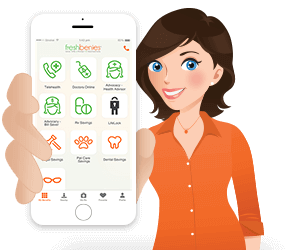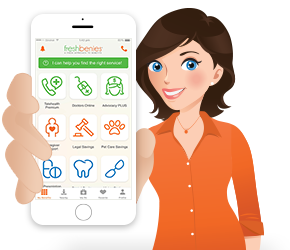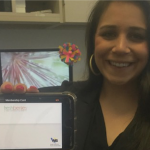Will EpiPen Start an American Health Care Revolution?
For years, insurance experts have used LASIK surgery as proof that “consumerism” in health care can actually improve outcomes. Over the past couple decades of the popular eye surgery, quality has gone up while costs have gone down, and most experts attribute these results to the fact that Lasik isn’t covered by most insurance plans. With no third-party payer in the middle to distort the price or hide it from consumers, LASIK providers actually have to compete for business. In terms of both cost and quality, we would say that this service is “transparent.”
This is just the opposite of most health care services, where a lack of transparency is partially to blame for medical inflation; with someone else paying most of the bill, providers can charge whatever they want.
We’ve heard this argument recently from Mylan, the maker of EpiPen, an epinephrine auto-injector that’s used in emergency rooms, schools, and elsewhere to treat allergic reactions, often reactions to a food allergy. The company has been in the news for the past few weeks because the cost of EpiPen, which has no direct competitors and no generic equivalent, has risen from $249 in 2009 to more than $600 for a set of two, according to a USA Today article.
In a statement paraphrased in the article, Mylan said that consumers who may have had a $25 copayment in the past “didn’t know the full price of the drug” but “must pick up the total tab” after switching to a high-deductible health plan. These consumer-driven plans have grown in popularity in recent years to keep premiums under control.
Mylan’s CEO, Heather Bresch, is trying to deflect criticism by suggesting that it’s the “broken” healthcare system—not Mylan—that’s to blame for the rising prices. In a CNN Money article, she’s quoted as saying that a lack of transparency “incentivizes higher prices.”
While Bresch is right with that statement, she didn’t complete the thought. Yes, low up-front copayments and a lack of transparency do allow health care providers and pharmaceutical companies to raise prices on a regular basis. Mylan has done this with EpiPen over the past seven years, either without the consumer realizing it or being angered enough to complain. But what she fails to mention is that today’s high deductible health plans expose people to the true cost of medical services and prescription drugs - and in the case of EpiPen, they’re plenty mad.
Unless you’ve been hiding under a rock, you’ve probably seen stories on the news, read articles on the Internet, and laughed at rants on social media about EpiPen. People are really mad about what they consider to be unfair pricing practices by Mylan, and they’re fighting back—so much so that it looks like they might win.
In addition to the bad publicity the company has received in recent weeks, several members of Congress have contacted the company or called for investigations, Clinton and Trump have called Mylan’s actions “outrageous” and said they are “price gouging” (finally, something they agree on!), and Bernie Sanders even weighed in with this: “There’s no reason an EpiPen, which costs Mylan just a few dollars to make, should cost families more than $600.” The post was retweeted nearly 9,000 times according to CrowdTangle and reported by the New York Times.
In response to all of the attention, none of which seems sympathetic to the makers of EpiPen, Mylan is offering “instant savings cards worth $300 to patients who have to pay the full price for the drug out of pocket” according to CNN Money. The New York Times reports that Mylan, in a rare move for a pharmaceutical company, is now saying it will start selling a less-expensive generic version of its name brand drug.
I’ve been a big fan of health care consumerism for as long as I can remember. I spent three years working for an HSA administrator, am a long-time instructor for NAHU’s Consumer Driven Health Care Certification Course, and currently work for a company that provides tools that make consumer-driven plans work better. Throughout my insurance career, I’ve argued that there are a lot of ingredients to consumerism. In addition to a plan design that encourages people to “shop around” and some sort of tax-advantaged account that lets people budget for future expenses, it’s critical that we provide people with alternatives like telehealth and prescription savings benefits as well as transparency tools that give people the information they need to make better healthcare decisions.
One new ingredient that adds fuel to the revolutionary fire is America’s use of social media. Today, the average American can write a 144 character post about their bad experience with a carrier, drug, provider, medical bill, etc. and it’s potentially broadcast to thousands. One of the original goals of consumerism was to create competition among health care providers - but it hasn’t worked. The power of social media could change this as people start publicly calling out the “price gougers.” Social media is a tool that will help consumerism actually drive down prices. It’s better than any transparency tool out there because people pile on and demand change.
Stay tuned—this is a huge case study that’s unfolding before our eyes, and if consumers win this battle it could be the beginning of a revolution.
What do you think? Comment below or email me at eric@freshbenies.com!















